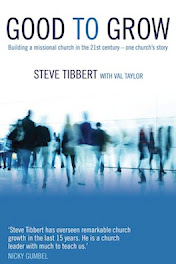I’m delighted to welcome my good friend and fellow-elder, Mick Taylor, for this series of guest blogs. He brings a wealth of knowledge on this important theological topic.
Eschatology literally means ‘last things’ which can sound rather remote and irrelevant. Many British Christians have a vague memory of seeing ‘Eschatology’ as the final chapter in a Systematic Theology book at some time, but the truth is that they don’t worry too much about it and are probably concerned that anyone showing an interest in the topic may be displaying early symptoms of an unfortunate spiritual disease. Of course, there is a minority who rather encourage this idea by making the ‘last things’ the first and only thing they want to talk about.
This series of blogs aims to clarify and evaluate the four main positions that Bible-believing Christians have adopted about the events surrounding the return of our Lord and show how the conclusions that you reach on this topic affect your vision for the church - and your engagement in mission. Eschatology is not to be dismissed as an irrelevant extra but should be the fuel, a driving motivation, for all we do. Anthony Hoekema put it like this,
From first to last, and not merely in epilogue, Christianity is eschatology, is hope, forward looking and forward moving and therefore revolutionising and transforming the present. (A A Hoekema - The Bible and the Future, p3)
Where Christians are vague or confused about eschatology it can often indicate compromise or at least an accommodation with the world as it is. People are either too comfortable with the way things are or despairing that things will ever change.
To be continued…
Charismatic Gifts in Church History
2 weeks ago






